If you’re thinking about moving to Croatia, you must read this! After more than ten years of living as an expat in Croatia, this is what I have learned.
It’s not hard to fall in love with Croatia, especially if you are like me and live on the stunning Adriatic Sea. But this pros and cons list, as well as other detailed information, will help you decide if living in Croatia will be right for you.
Before you choose to live in Croatia, please read on.

It’s not very hard to fall in love with Croatia – it’s a beautiful place. Like all countries, moving to Croatia has pros and cons. I know; I have lived here (from Australia) for nine years.
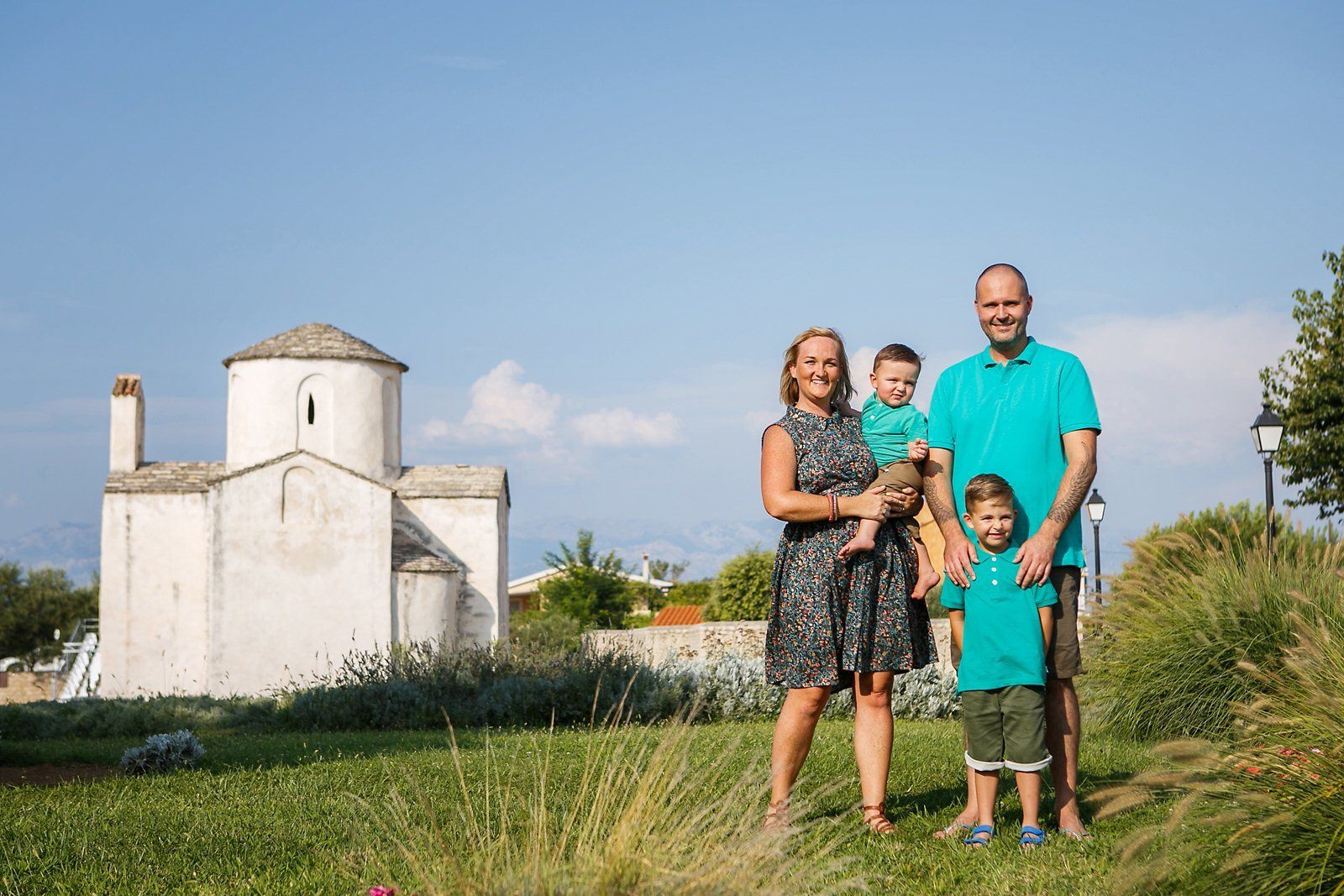
Skip Ahead To My Advice Here!
Pros And Cons Of Living As Expats In Croatia
Pros Of Living In Croatia
- The relaxed lifestyle
- The beautiful environment
- The healthy food
- The community spirit
- There is so much sunshine and generally great weather, even in wintertime, in many parts of the country
- Croatia’s proximity to the rest of Europe is great for traveling.
- Free healthcare system (though long delays)
- Welcoming and friendly locals
- Beautiful natural scenery and Mediterranean climate
- Rich history and culture
- Opportunities for outdoor activities and adventures
- Safe and secure country
- Great digital nomad visa option
Cons Of Living In Croatia

These are relative to where you’re from and your current expectations. For us, they were and are;
- Tough economic climate
- The high cost of living in Croatia. It’s important to understand that Croatia’s cost of living from a Croatian wage is even worse. If, however, you have a foreign monthly income or savings, then the cost of living is okay
- Very high taxes
- The Croatian bureaucracy. This factor is the most difficult to accept. Things take a LONG time to be processed and an even longer time to ensure that you’ve completed the steps required. Simple tasks like submitting a visa application will take weeks, if not months, of running around
- Outside of summer, there is a reduced capacity for places to eat and things to do if you live on the Dalmatian Coast, so I always advise people to be mindful of what they plan to do in the colder months: travel, freelance work, a hobby, something to keep you busy. Of course, if you have children, then they keep you busy
- Language barrier
- Limited job opportunities if you do not speak the language
- Poor public transport infrastructure
- Political instability and uncertainty
4 Quick And Simple Things You Need To Know If You’re Moving To Croatia

Visa
Depending on where you come from, you may need a visa to enter Croatia. You will need to check the visa requirements with your local Croatian embassy. You can apply at the Croatian Embassy in your country if you need a visa. They will have an application form and explain to you the identification required.
Expats and digital nomads have different visa requirements.
You will need a heap of identification and proof of address. It is worth mentioning that certificates for birth, wedding, etc., need to have an issue date of fewer than six months. If you have a Croatian background/spouse, you can apply for your visa at the police station when you arrive in Croatia.
If you do not have a visa option, it will be difficult to stay longer than 90 days without a visa.
Jobs
Jobs are easy to come by if you speak Croatian. If you manage to get a job, the pay rates in Croatia are relatively low compared to the rest of Europe.
Average Salaries – As At December 2023
Virovitica-Podravska County – €1,050
Brod-Posavska County – €1,063
Vukovarska-Srijemska County – €1,075
Bjelovarska-Bilogorska County – €1,076
Požega-Slavonska County – €1,079
Međimurje County – €1,099
Lika-Senjska County – €1,100
Koprivnica-Križevačka County – €1,100
Varaždin County – €1,002
Sisak-Moslavina County – €1,113
Dubrovnik-Neretva County – €1,030
Zadar County – €1,129
Osijek-Baran County – €1,126
Istria County – €1,126
Šibenik-Knin County – €1,136
Split-Dalmatia County – €1,140
Krapina-Zagorska County – €1,154
Karlovačka County – €1,167
Primorje-Gorski Kotar County – €1,194
Zagreb County – €1,210
City of Zagreb – €1,370
This list correctly displays the counties ranked from the lowest to the highest average net salary as per the details you’ve provided.
Language
Most young people speak English; however, you will find the older generation doesn’t speak English. Learning the language can be challenging; however, it is worth learning Croatian.
As someone married to a Croatian, I felt I adjusted well to living in Croatia.
However, I had spoken to many expats before me who went back’ home’ as the culture shock and difficult working conditions were too much.
Insurance For Healthcare In Croatia
If you live in Croatia, it is mandatory to have Health Insurance. Anyone living in the country must pay for health insurance through HZZO, which is a government organization. Organizing this was prolonged and painful for us, but we finally got there. You will have to manage this once you arrive.

Digital nomad insurance.
Living as a digital nomad in Croatia offers an enchanting experience, with its pristine beaches, clear waters, and towns filled with history. As someone who has navigated the challenges and joys of setting up shop in a new country, I can speak to the importance of having solid support systems, particularly when it comes to healthcare. SafetyWing Nomad Insurance is an exemplary travel medical insurance that adapts to the unpredictable nature of nomadic life. It’s structured to be highly affordable, with coverage costing just a few dollars per day.
The insurance policy is comprehensive, supporting you across more than 180 countries, which means even if you decide to hop from the Dalmatian Coast to another part of the globe, your insurance follows. With a $250,000 cover on medical expenses and additional options like electronic theft insurance, it offers peace of mind, particularly in a tech-savvy era.
Moreover, the flexibility of this insurance is a boon—there’s no need for long-term commitments as you can cancel at any time, aligning perfectly with the nomad’s fluid lifestyle. With 24/7 customer care available and an average response time of less than a minute, SafetyWing ensures that help is always just a moment away, allowing you to immerse fully in the Croatian culture and community without hesitation.
Brands We Use And Trust
Tips For Moving To Croatia – Real Lessons Learned From 10 Years Of Living In Croatia As An Expat
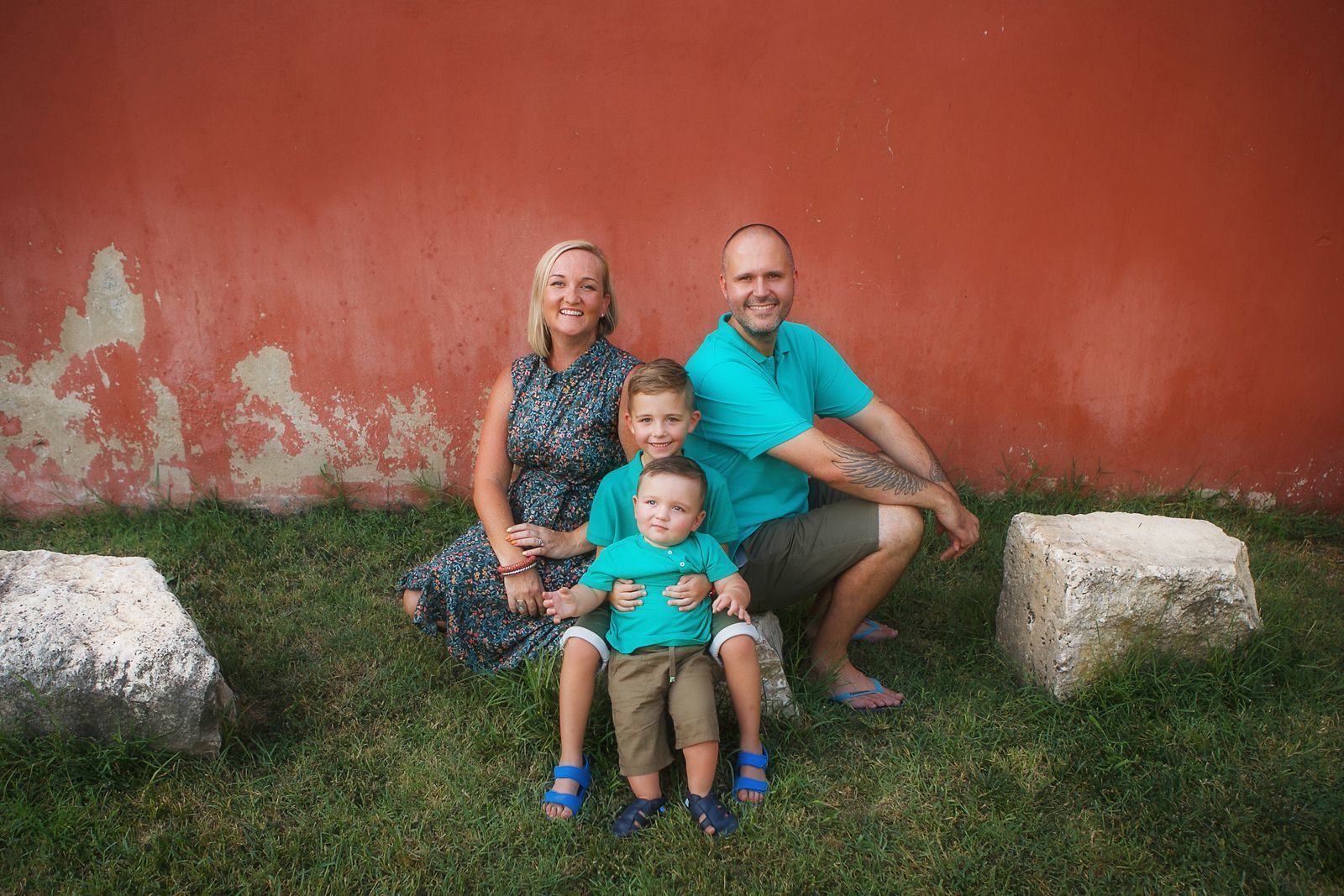
Sigh, I get sick of being asked this question because moving to Croatia is different for everyone.
If you plan to move to Croatia, do not take advice from anyone who does not live in Croatia 24/7 – 365 days a year – for at least a full year.
They are too fresh to know anything less than a year (or two or three).
If they do not live here, 365 days a year, they have a skewed view of real life.
I would say you REALLY need to be prepared. Come for at least six months, try it out, and do not come when it’s summer, sunny, and everyone has pockets full of cash.
Come between November and April when the tourism and apartment money has been spent, and the weather is less than outstanding. Keep your eyes open and be honest with yourself.
Don’t quit your job; pack a shipping container until you know what you are in for. I have spoken to many people who returned after a failed attempt. Almost always, they returned home, as Croatia did not meet their unrealistic expectations about finding work, cost of living, etc.
Remind yourself that there is a reason that hundreds and thousands of Croats have moved abroad these past few years. This country can be tricky to live and survive in – it is not for everyone.
Also, join all of the ‘expats in (city)’ Facebook groups (see below for their list) and connect with others with similar situations. Don’t take anything one person says as gospel — not even mine.

Getting A Croatian Visa
Oh god, what a head fuck.
Getting a visa as a foreigner in Croatia is like winning a fluffy toy at the carnival – sure, it can be achieved, but it isn’t easy and will take many attempts. The only difference is it is free.
Oh wait, it is only free so long as you are from the EU. If not, be prepared to fork out hundreds of euros for the mandatory health insurance back payment fees. When you go to your local Hrvatski Zavod Za Zdravstveno Osiguranje (HZZO) office, you’ll discover that you have to pay for the 12 months you were not in the country. Ours was over 500 euro each back in 2012.
The legislation is constantly changing, so be sure to ask at your Croatian embassy where you live – more than once. But be warned, most embassies are hopeless. They don’t always know the current legislation, and I have heard from many people over the years – that many embassies do not want to deal with helping new people move back to the motherland. Head straight to the Ministry of Police (MUP) when you arrive and start the lengthy process of getting your visa.
While we are on the topic of the MUP, be sure to take someone with you who speaks Croatian fluently. Even in the foreigner’s line, getting an English-speaking staff member is not always possible – and if it’s like the one in Zadar, the service will also be provided without a hint of trying to speak English.
My recent trip there to inquire about getting my citizenship was met with a deathly look of disgust; the women at the counter had to ask a colleague what the process was – and all they could agree on was that I should just come back when it expires and see what the rules are then.
Five years ago, I was told that once I reached the 5-year mark, I could return to MUP and be given my Croatian citizenship. But now, I am not sure. So, I go back in a few months to see what rules apply and/or have changed. I am mentally preparing to take the citizenship test.

Language
If you don’t speak Croatian, life will be tough. I know that everyone says that Croatians speak English – and they do, but not in all cases.
You’ll be able to communicate with the majority of people who are younger than 40. But even then, maybe the doctor will refuse, and you’ll find yourself explaining your symptoms with hand gestures.
Croatian is a damn complex language to learn and even harder to speak correctly. Why must there be so many crazy grammar rules? I mean, seven noun declensions……
Please don’t leave it too late to take lessons and get help. Trust me; you’ll need it.
I restarted my Croatian lessons and can genuinely say that life here would have been even more challenging had I not taken them.
- Learn How To Speak Croatian Part 1
- Learn How To Speak Croatian Part 2
- Learn How To Speak Croatian Part 3
- Learn Croatian Online Like Me
Money
The salaries in Croatia are meager when compared to most developed nations. Not much is left over once you pay bills, rent an apartment, and buy food.
On the other hand, if you have a salary from abroad, you’ll live like a King or Queen. If you plan to work locally, you’ll have to live like a local.
Eating out, traveling, or paying for services like a babysitter are affordable, so long as you earn more than minimum wage (or have those dollars from aboard on hand); otherwise, you’ll be hard-pressed to get someone to look after your child. At the same time, you work, so you’ll need to enroll your kids in a kindergarten.
Want a job as soon as you arrive? Good luck. It’s not as easy as you think. Make plans to freelance or set up your own business if you need money immediately. Or else have savings to get you by until you can find work.

Schools In Croatia – Education In Croatia

If you plan to move to Croatia with school-age children, then you’ll be happy to know that public education in Croatia is (almost) free. Just be sure to have money for many books and appropriate school clothing, as there are no school uniforms.
Kindergarten (suitable for ages 1-6) is not mandatory, and while this is subsidized, it is not free and will set you back at least 80 euros a month, up to several hundred if you plan to go to the British kindergarten in Zagreb.
Primary school education is, of course, compulsory – that begins at seven years of age.
The secondary education system is vastly different from what I am used to in Australia, and I have yet to master its complexities, so be sure to ask people with kids the same age as yours how it all works.
Healthcare

Hmm, this one is tricky.
You can obtain primary healthcare all over the county, no matter where you live. You’ll wait. And wait, and wait. I have heard of people waiting 6-12 months for an MRI and more than six months for a mammogram to check a breast lump. We waited four months for a specialist appointment for my newborn son.
That said, my son was treated with immediate and astounding care when he was born with severe complications. He spent several weeks in Zagreb in the NICU at the country’s best hospital – all expenses paid. My treatment was less than stellar (think plenty of tears and confusion), but I never once doubted the care he received.
He also spent a week in Zadar Hospital, and I have zero complaints. Sure, the place is old and run down, and I had to sleep overnight sitting up on a desk chair, but his medical treatment is what I would have received in Australia.
If you have a job, your employer will pay your essential healthcare contributions, and you can also pay a small amount extra to avoid paying fees when going to the hospital or each time you go to the doctor or dentist. If you do not work, you will need to add to your budget to pay for this yourself.
But, this is the tricky part – getting access to this ‘free’ service (should you be eligible) is a pain in the ass. Leave around 2 or 3 days over three weeks to achieve the steps necessary to access this service, and then about another six months for your card to arrive in the mail.
I advise having a savings fund for emergency healthcare to go private. You can find blood tests, MRIs, doctors, dentists, etc., all over the country that you can see fast, provided you have money in that pocketbook.
As a rough guide, we paid between 40 and 80 euros per appointment for private doctors to see my newborn son and avoid waiting months for the hospital to get him into an appointment.
Retiring In Croatia
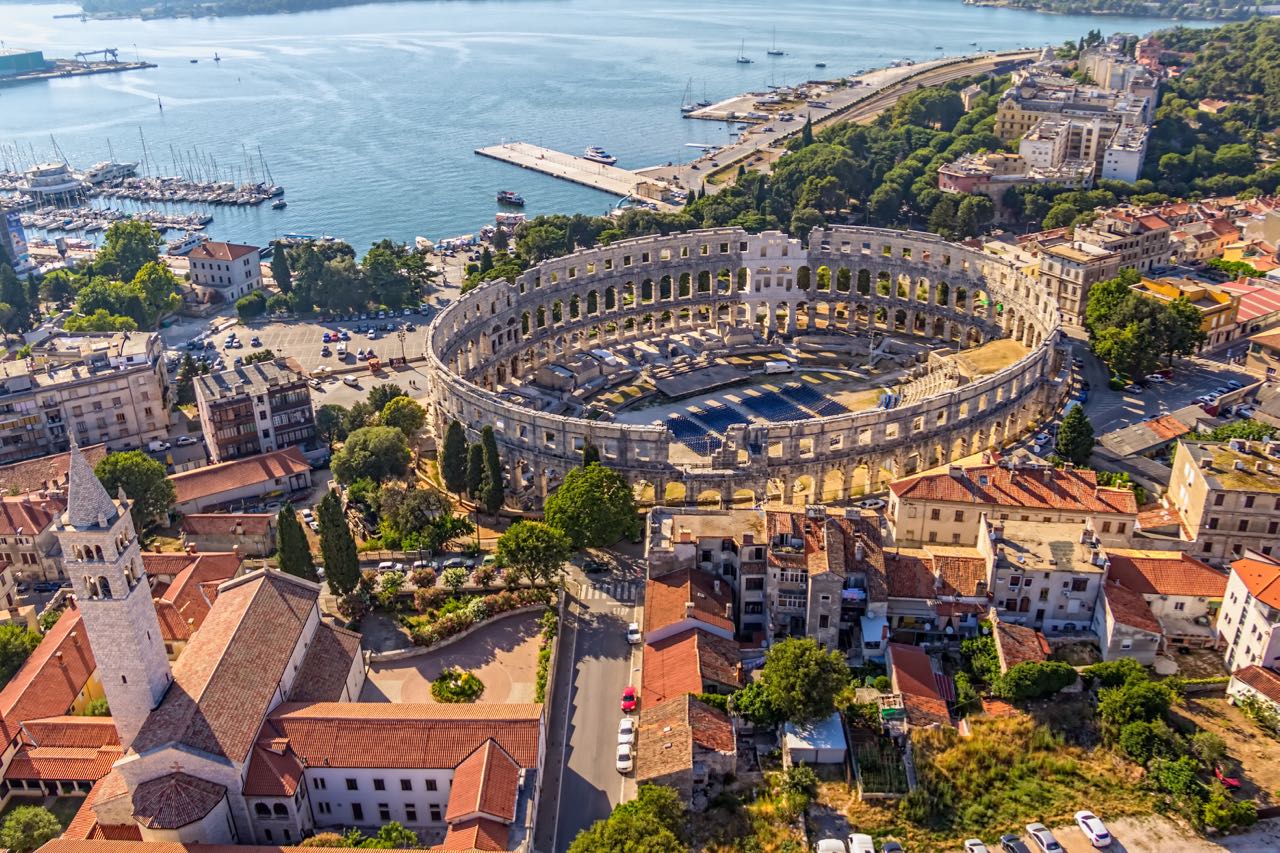
Sigh. Yeah, yeah, Croatia is an excellent place to come to live out the end of your days. But really, where are all of the young families, singles, hard-working movers, and shakers? Come on, people, move to Croatia.
Travel LIfe In Croatia
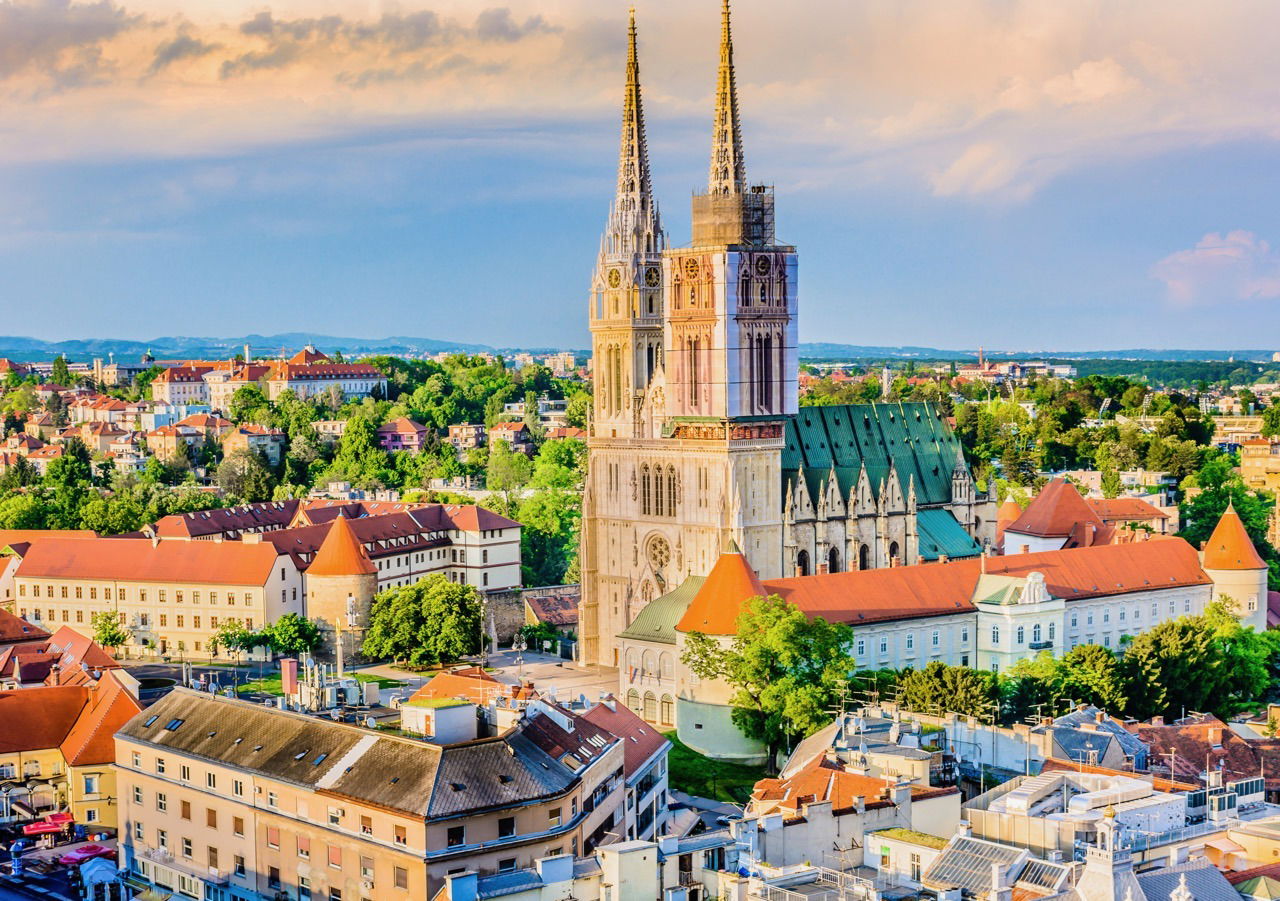
What a place to live. After five years of traveling this magnificent country, I can tell you there is no shortage of things to do and new places to discover. And, when you are bored with Croatia, we have so many neighboring countries just waiting for your euros.
Visiting New Friends
You’d be hard-pressed to find any Croatian family without an emphasis on family, friends, and food. Hospitality towards your guests is critical. Offering drinks, pre-meal snacks, a meal, a second helping, even a third helping, cake, coffee, and then more drink to your guests is necessary. Then your responsibility in return is not to decline… ever. Saying no would be plain rude.
To avoid being rude (or, in some cases, being nagged), here is what I suggest you do:
- Take a small serving the first go, thus allowing plenty of wiggle room in your jeans for that second helping you will be required to consume. Failure to heed this warning will see you having to hear repeatedly how you are too skinny, you must be hungry, and so on.
- Your host may also use guilt to force you into a second helping. My favorite one (yes, I have become one of ‘them’) is “Oh, did you not like the food”? Boom! Host 1-guest 0.
If you have listened to this very sane advice, you are still hungry by this stage, so when your hosts ask you to take another serving, you eagerly oblige. Everybody wins.
The tricky part is the third serving; you may want one, but chances are you’ve already indulged in two plates of Kiseli Kapus and yummy ribe sa žara, so when that time comes, you’ll need to be polite and say no thanks. If you want to show off, you can use the phrase “ne mogu više, hvala,” which means you can’t take (eat) anymore.
Word of warning: be sure not to overuse this phrase, as your hosts may come not to believe you.
People

The people throughout the country who will tell you that you look fat and gained 10 pounds are the same people you can call when you need help. And you will need it.
Be warned that the Croatians are brutally honest – some too much so for my taste – but you have to roll with it for the most part. It will be worth it; my Croatian friends are worth their weight in gold – I treasure them dearly.
It is also the case that people can be such bullshitters. The plumber will tell you he will be at your house at 7 am, and by 10 am (if you are extra lucky), and you are into your second cup of coffee, he will knock on the door as if nothing happened. Either that or he will show up and have forgotten his tool and say he will be back tomorrow – which can quickly turn into a week. True story.
It’s always who you know. So network. You will have to ask many people for references and help along the way. We never networked at the start; it seemed so fake. But now I realize, here in Croatia, that old saying rings true: it is not what you know – but who. Don’t fight it; go with it.
Government Administration
You will have to do many rubbish admin types of jobs, just like any place in the world. But here, things are beyond disorganized.
While at government offices (and doctors), be warned. These breaks are known as ‘pauza.’ It’s when the whole place goes on a lunch break, and you must wait 30 minutes until they return. Please do your homework, find out when they are, and avoid them like the plague.
If your request is out of the ordinary, you need extra help, or the staff member is having a bad day, you’ll probably end up leaving in a bad mood and with nothing accomplished. I always now assume that I can’t complete a task, and then if I do, it’s a win. But when I do not, I usually take myself to a cafe, shake it off, and try again in a few days.
Safety In Croatia
So, is Croatia a safe country to live in? Yes, Croatia is recognized as a safe country with a low crime rate. While it boasts a strong sense of community, adopting common sense precautions is advised, as in any country you live or travel in.
Taxes In Croatia
So, how are taxes in Croatia? Tax rates in Croatia vary from 12% to 36%, depending on income, aligning with the tax structures of other European countries. Expats looking to live and work in Croatia should consult a tax professional to navigate the complex tax system effectively.
Racism
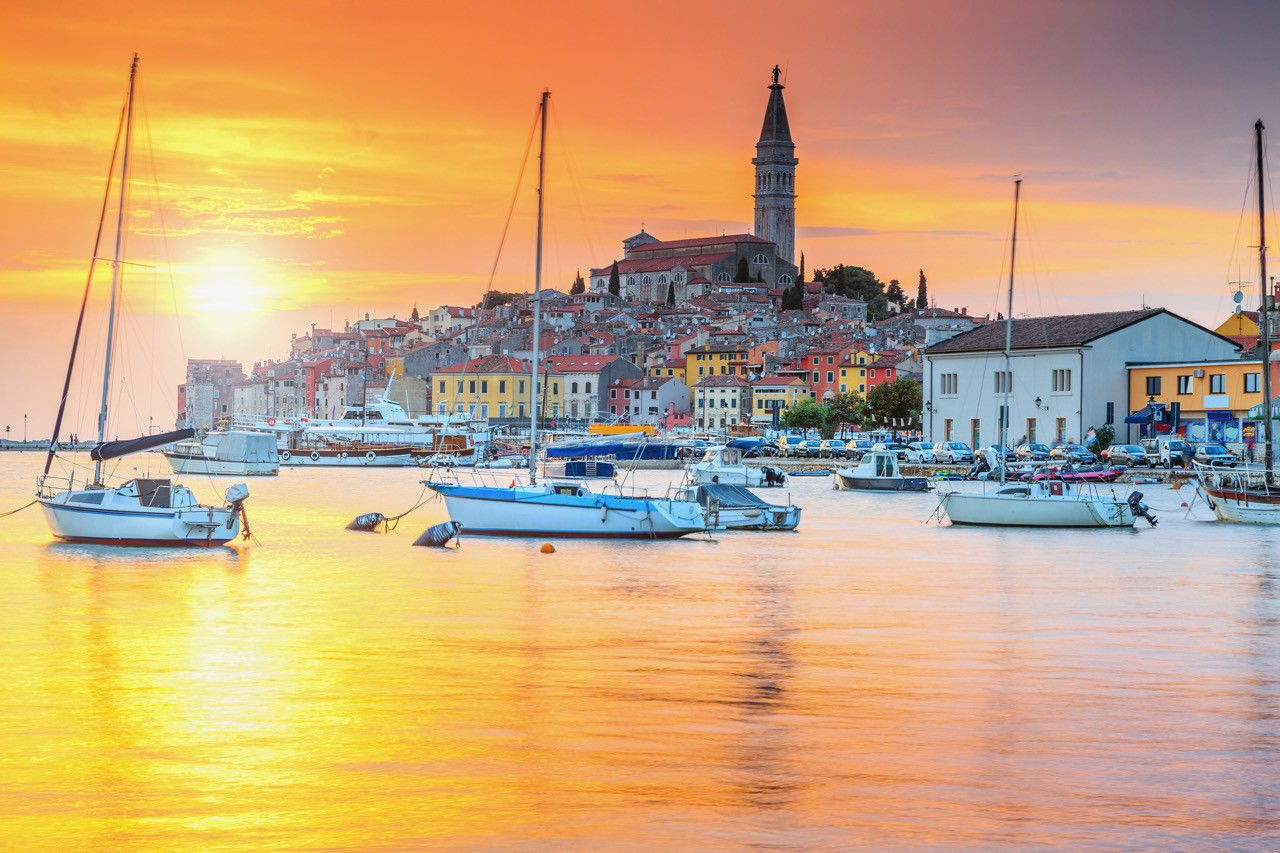
Racism in Croatia. I do not have any firsthand experience with it. I never confirm or deny racism rumors in Croatia on my blog, social media, or any other form. And I do not plan to start now. If you want to read a post covering both sides of the topic, I suggest you start here.
Move This Adventure To Your Inbox & Get An Instant Freebie

No spam. Unsubscribe at any time.
FAQs You Need To Know About Living In Croatia
Do I need extra health insurance in Croatia?
Having extra health insurance in Croatia is highly recommended. Despite the universal healthcare system in place, additional coverage is advisable to ensure access to comprehensive medical services – fast.
Is Croatia part of the European Union?
Yes, Croatia has been a member of the European Union since 2013, allowing EU citizens to live and work in Croatia under the same rights as locals without needing additional permits.
How is life in Croatia for expats?
Expats often find living in Croatia very enjoyable, thanks to its high standard of living, scenic coastal areas, warm climate, and vibrant expat communities for socializing and networking.
What is the education system like in Croatia?
The Croatian education system is comprehensive and holds high standards, offering a range of public and private schooling options. The country places a strong emphasis on the importance of education at all levels.
How can I stay in Croatia for longer periods?
To stay in Croatia for extended periods, obtaining a residence permit is necessary. The type of permit required (e.g., work, study, family reunification) varies based on the purpose of your stay. Checking specific requirements and applying for the correct permit is crucial.
What are some important things to know before moving to Croatia?
Key considerations before moving to Croatia include understanding visa and residence permit requirements, the cost of living, the healthcare system, and the basics of the Croatian language. Familiarizing yourself with local customs and culture is also beneficial.


I live in Brazil and i think cost of living is not so high. I was in Slavonia and i knew Zagreb, but i think was expensive but its good. Real is 2.5 more than kuna1 o/
I want move soon to this paradise called Hrvatska.
Hvala.
Nice article.. However… When I come to live to the UK 11 years ago I also expirienced huge ” Cultural Shock” So many years after and I still can not comprehend some behaviour and culture… But definitelly I am delighted to live in country with NO Birocracy at all.. Well that is really really great!
Yes, that would be nice! What other things there puzzle you?
I have experienced the culture shock both ways and still do every time I visit the area. It is inevitable when you move from one place to another which has a significantly different way of life in some respects. It is just a break in habits and expectations but it does go to show how naturally inflexible we all are about our usual way of life. I even get surprised when I visit Croatia and things are more like in the UK than I remember – because it us unexpected. It’s still nice when some things haven’t changed much though, makes me feel more relaxed to be dealing with the familiar.
Btw I was hoping to rent a place over winter somewhere quiet – is this possible or do people tend to close up over winter?
Thanks for the great blog!
Croatia is so beautiful, so mixed cultures, zagreb looks like little Vienna, and whole mediterranean coast is sc nice and clean. I’m in love with this country… :*
Hey, Sarah Jane. I’m considering Croatia for retirement and wanted to ask what level of monthly income would be required to sustain two people comfortably ?
Sorry, I do not know.
I am finding that there are not a lot of places in Eastern Europe that will accept an American pension as proof of income. Otherwise I would be there in a flash. Romania, Bulgaria, Hungary all want you to either be working or have your own business. It’s frustrating!
Thank you for always posting such helpful information! Our family is planning to move next year to Zadar from the US. I was getting contradicting information regarding the health insurance. I was told by one person that it would cost about 450 kuna per month per person (we are a family of 5). However, I was told by someone else that bc we both have our domovnica, we will be covered as citizens and do not have to pay. Do you know which is correct? We would need to plan for in our savings so any information would be helpful! Thanks!
Hi! Thank you for always posting such helpful information! My family and I are planning to move to Zadar from the US next year. We have been receiving contradicting information regarding the health insurance. I was told that we would need to pay 450 kuna per month per person (we are a family of 5). But then I was told by someone else that because we have our domovnica, we would be covered as citizens and would not need to pay. Do you know which is correct? We would need to plan for in our savings so any information would be helpful. Thanks!
Do not quote me Jenni, but… my boys have their Domovnice – and the kids are free. But adults have to pay. Best of luck with the move. We love Zadar, and hope you will too.
Looking very serious at retirement in Croatia. My wife, myself and 24 year old daughter. In a town outside a big city. I have cancer and am worried about the care I can get here. Can you speak to the health care for me?
In short. Don’t. This place isn’t for the sick. My husband is a cancer survivor and we have a get-out-of-Croatia fund in the awful event that his cancer comes back.
Hi, can you please help?
My four questions:
1) Will I be able to live comfortably in Zagreb on a $4,000 (USD) net-income per month pension?
2) Is paying $800 (USD) per month for a one-bedroom apartment be considered “reasonable” in Zagreb?
3) Is it reasonable to pay $12 (USD) per hour for a house cleaner/private cook in Zagreb?
4) What “status” will I have, if any, for having a net-income of $4,000 (USD) per month?
Thank you.
Hi, we’ll be moving to Zagreb from the US for 5 months next year and we have two kids, 6 and 5. Here in the US we homeschool and my understanding is that I do not have to send them to school in Croatia, is that correct? Thanks for your help!
Kids start school, at age 7 in Croatia.
Yes, as a foreigner you will be able to continue homeschooling your children. We have British friends who do that.
Thank you for this Blog! We may meet at some point in the future since we are planning to move to Croatia. :-)
Hello,
I’d like to say I’m really happy I found this blog, there’s not much stuff on the web about living in Croatia as an expat.
Can I ask, do you know if a wage of £2200 is enough for 1 person to live comfortably? Bothe myself and my partner will be earning around this much each, so combined wage of £4400.
I’ve read quite a few income and outgoing reports that state expenses as being as much as in the UK, yet the national average wage is quite low in Croatia.
Ideally we’d like to live in the Konavle region. We bothe work from home so could do our UK jobs in Croatia.
Thank you so much, if you can help with any of my concerns I’d be really grateful.
All the best.
That’s about 35,000-40,000 kuna a month. Families I know live on about 8000 kunas a month, so you’ll be more than fine.
Zaista predino, prosle godine bila sa obitelji, vrlo vrlo kvalitetno
We are looking to retire in Croatia ASAP, as soon as we finish upgrades on our house we will sell and move. I was told by the woman that writes a blog that you can’t retire to Croatia. You can only come to open a business or family reunification. Is this true. We will have enough money to support ourselves and pay for healthcare etc. It was very discouraging to be told that. She wanted 10.00 euro to refer an immigration attorney. I can find one on line and I have a friend born and raised in Croatia. I have also read it is hard to make it to 5 years but you did… We are still on the road to coming there. I will not give up. We currently live in the US Virgin Islands for over 45 years. we are ready for a new adventure…We have been there 6 times and returning once again in April/May. Thank you in advance for any advice.
Cindie +Jon
If you do not have Croatian heritage or marry a Croatian – yes, you can not retire here without opening a biz, etc. Sorry that person is right. I have seen a few Americans try – and I have seen them all go back without success.
How about EU citizens? They I assume can retire in Croatia, right?
yes, croatia is part of the EU so as europeans, we can retire in croatia, I am planning on moving there.
Do you know where can I find info on Croatians who are not resident of Croatia? If they go back to Croatia for a month or 2 do they have access to healthcare?
No, they don’t. You have to pay for it.
I have been offered a job in Dubrovnik. While it is a very interesting and challenging job, I can’t bear leave my daughter (5y.o) and my husband. I am from Indonesia and thinking to bring my family with me, after I settled in. Do you know how’s the process ? Paper works needed or any advice would be appreciated
I am not sure if they can accompany you straight away or you go through the family reunification process after you get residency. You’ll need to ask your employer to help point you in the right direction. Best of luck.
Bok!
Any advice about housing? In particular, what’s the cost of construction? And how do you find tradesmen?
Pozdrav,
Bob
Hi Sarah,
Excellent reading. You write that the taxes are high in Croatia. Can you explain a bit which taxes you refer to?
And do you know which cities have airports with good international connections (via Zagreb is also ok).
I am thinking to live in Croatia in the winter months.
Thanks. Frank
For taxes, I suggest you look at this page to know what yu’ll pay- https://investcroatia.gov.hr/en/tax-system/
Regarding airports with good international connections, Croatia has several options:
Zagreb: The capital and largest city, Zagreb Airport (Franjo Tuđman Airport), offers numerous international flights
Split: Split Airport is also well-connected internationally, especially during the summer months
Dubrovnik: Dubrovnik Airport is another option, particularly popular with tourists
Pula, Zadar, and Rijeka: These cities also have airports that provide international connections, though they might be more limited compared to Zagreb, Split, and Dubrovnik
I have them all here for you https://www.chasingthedonkey.com/flying-to-croatia-airports-in-croatia/